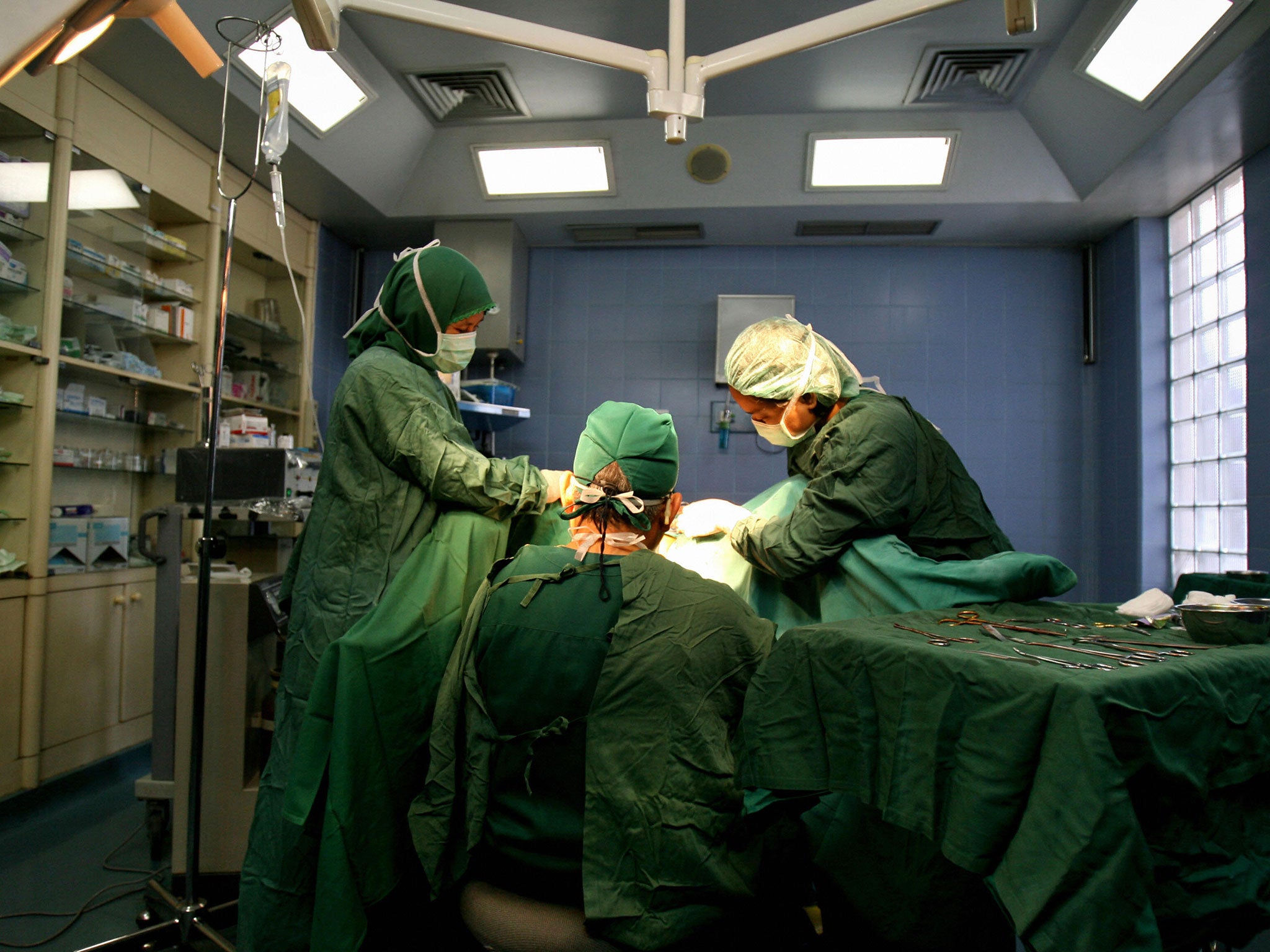Advert for designer vagina surgery banned for being ‘irresponsible’
The Advertising Standards Authority said the advert’s description of labiaplasty as achieving ‘a more natural appearance’ implied that the pre-surgery labia might be somehow ‘unnatural’ in appearance

Your support helps us to tell the story
From reproductive rights to climate change to Big Tech, The Independent is on the ground when the story is developing. Whether it's investigating the financials of Elon Musk's pro-Trump PAC or producing our latest documentary, 'The A Word', which shines a light on the American women fighting for reproductive rights, we know how important it is to parse out the facts from the messaging.
At such a critical moment in US history, we need reporters on the ground. Your donation allows us to keep sending journalists to speak to both sides of the story.
The Independent is trusted by Americans across the entire political spectrum. And unlike many other quality news outlets, we choose not to lock Americans out of our reporting and analysis with paywalls. We believe quality journalism should be available to everyone, paid for by those who can afford it.
Your support makes all the difference.An advert for so-called “designer vagina” surgery has been banned for being irresponsible over concerns it could encourage women to be dissatisfied with their bodies.
The ad for labia reshaping at the London Bridge Plastic Surgery clinic, carried in the London Metro newspaper, offered women the opportunity to “achieve a more natural appearance” and “relieve the discomfort caused by enlarged labia”.
Five readers complained that the ad was socially irresponsible for encouraging women to be dissatisfied with their bodies and to undertake unnecessary cosmetic surgery.
London Bridge Plastic Surgery said 100 per cent of women undergoing labiaplasty were looking for a more 'natural' appearance, 91 per cent reported discomfort from clothing, 69 per cent reported discomfort when doing sports and a significant number reported discomfort during intercourse.
The clinic said it therefore did not believe it was socially irresponsible to advertise the availability of such surgery, and the women undergoing the procedure did not consider it to be unnecessary.
Metro said it considered the ad to be suitable for their readership of young professionals with disposable income and who would not take offence at that type of promotion.
The Advertising Standards Authority (ASA) said the description of labiaplasty as achieving “a more natural appearance” implied that the pre-surgery labia might be somehow “unnatural” in appearance.
It said: “We considered that it was irresponsible to imply that any part of a person's body was not natural in appearance, including because it could encourage them to be dissatisfied with their body, regardless of whether or not it encouraged them to undertake cosmetic surgery.”
It said that some women might suffer from labial discomfort and seek a labiaplasty, but it was not the case that having larger labia was abnormal or would inevitably cause discomfort, adding: “We considered that the claim risked encouraging women to view their labia as abnormal, particularly in combination with the reference to 'a more natural appearance'.
”We therefore concluded that the ad was irresponsible.“
It ruled that the ad must not appear again in its current form, adding: ”We told (the clinic) to take care when advertising labiaplasty to ensure that they did not encourage women to be dissatisfied with their bodies.“
PA
Join our commenting forum
Join thought-provoking conversations, follow other Independent readers and see their replies
Comments